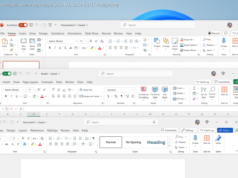Researchers hoping to better interpret data from the detection of gravitational waves generated by the collision of binary black holes are turning to the public for help.
April 14,2019
Researchers hoping to better interpret data from the detection of gravitational waves generated by the collision of binary black holes are turning to the public for help.
West Virginia University assistant professor Zachariah Etienne is leading what will soon become a global volunteer computing effort. The public will be invited to lend their own computers to help the scientific community unlock the secrets contained in gravitational waves observed when black holes smash together.
LIGO’s first detection of gravitational waves from colliding black holes in 2015 opened a new window on the universe, enabling scientists to observe cosmic events spanning billions of years and to better understand the makeup of the Universe. For many scientists, the discovery also fueled expansion of efforts to more thoroughly test the theories that help explain how the universe works—with a particular focus on inferring as much information as possible about the black holes prior to their collision.
First predicted by Albert Einstein in 1916, gravitational waves are ripples or disturbances in space-time that encode important information about changing gravitational fields.
Since the 2015 discovery, LIGO and Virgo have detected gravitational waves from eight additional black hole collisions. This month, LIGO and Virgo began new observing runs at unprecedented sensitivities.
«As our gravitational wave detectors become more sensitive, we’re going to need to greatly expand our efforts to understand all of the information encoded in gravitational waves from colliding binary black holes,» Etienne said.






